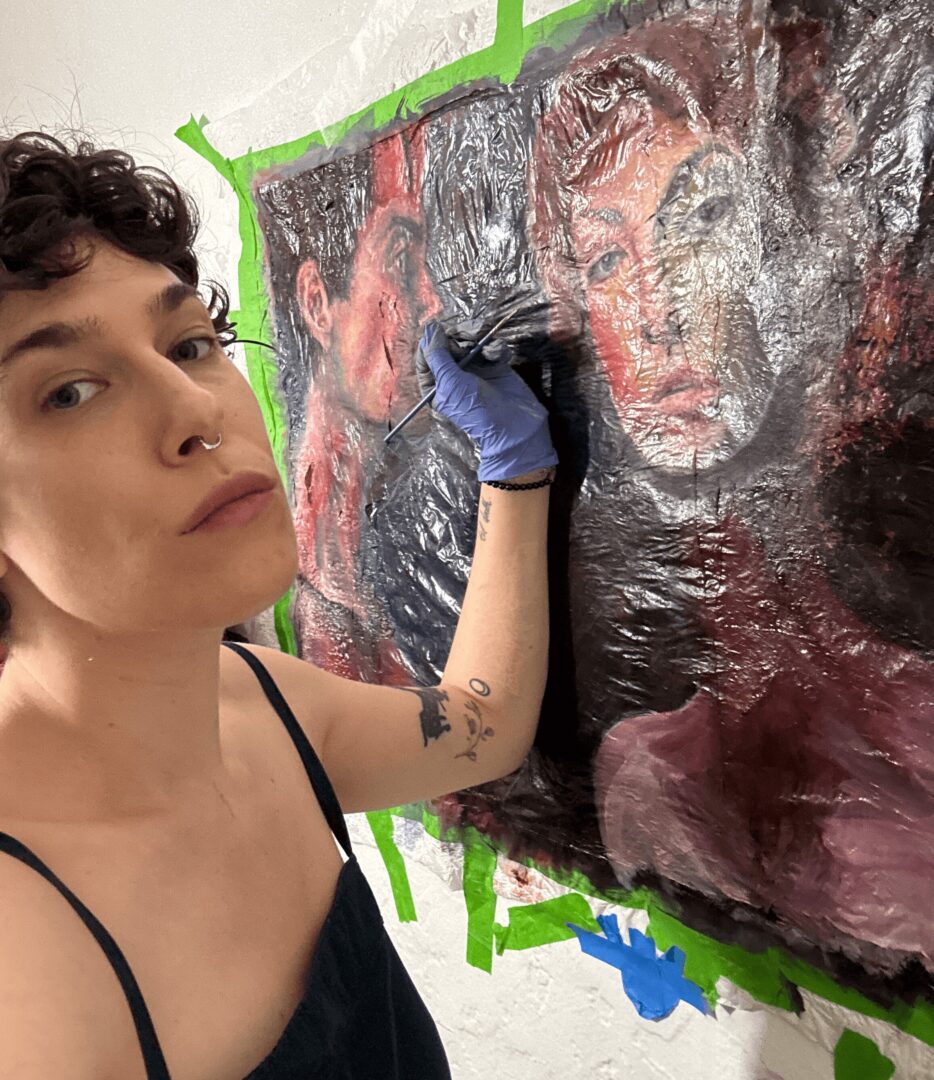Alright – so today we’ve got the honor of introducing you to Jillian Katz. We think you’ll enjoy our conversation, we’ve shared it below.
Hi Jillian, appreciate you sitting with us today to share your wisdom with our readers. So, let’s start with resilience – where do you get your resilience from?
For (more often) better or worse, I’ve been an initiator of difficult conversations for as long as I can remember. While challenging, getting curious about my discomfort is how I’ve moved through some of my stickiest and/or darkest challenges — even having breakthroughs as a result.
The example I love to share is the story of my plastic canvases. When I began painting with oils, my husband and I couldn’t afford canvas; our small apartment doesn’t have floor space for an art studio setup. I truly felt that if I didn’t start painting, I would explode, so I refused to be a victim of circumstance.
As a perfectionist, I had a difficult conversation with myself about starting with the materials around me versus waiting endlessly for a “right moment” to work on canvas that might never come. I decided to work with existing resources that I already have in abundance.
After weeks of research and experimentation, plastic shopping bags became my “canvas”. Now, they are one of the main signifiers of my work.
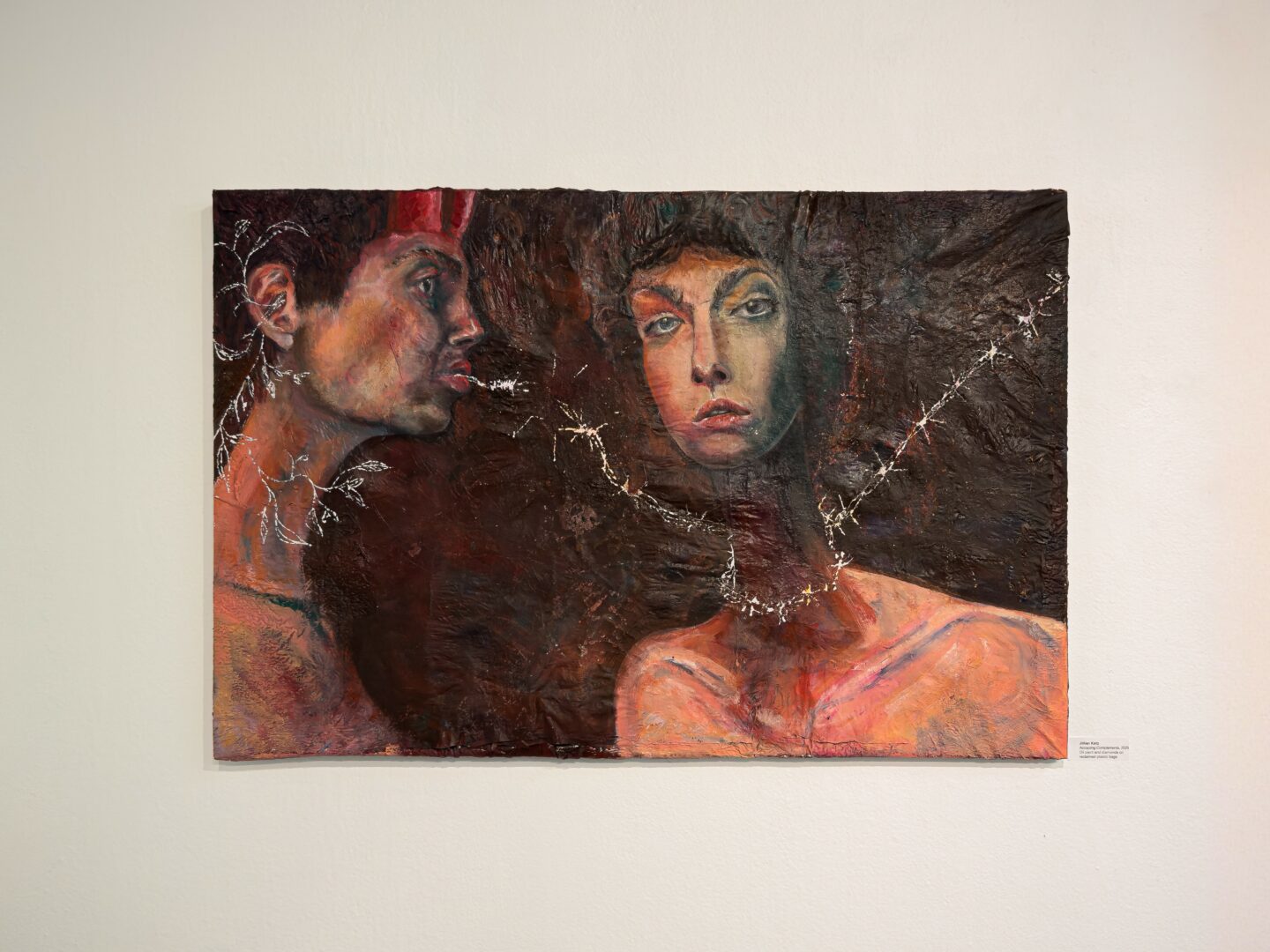
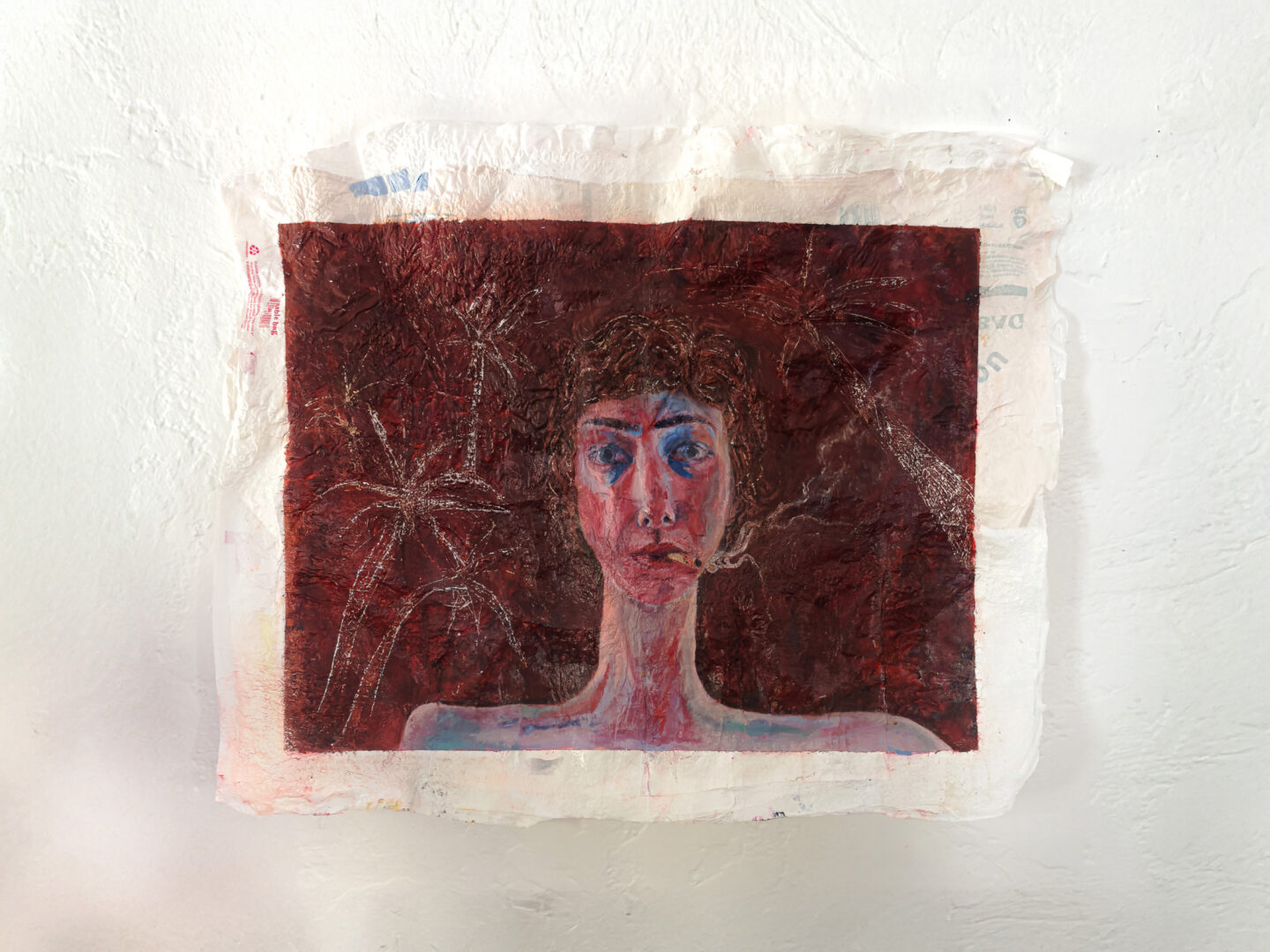
Thanks, so before we move on maybe you can share a bit more about yourself?
I am an artist with a background in graphic and service design. I built my design career over ten years focusing on brand and editorial projects.
Service design involved becoming immersed in whatever broken system the assignment required: hospital triage, insurance approvals, government benefit information dissemination… to identify the big problem, to better understand critical pain points and who they affect, and potential solutions that serve all those stakeholders and are built to scale. It was challenging and rewarding work, but it wasn’t a sustainable career for me.
After a decade in design I completely burnt out, turning to art in desperation not knowing it would completely change my life. I in a way I’ve always known that I’m an artist; I suppressed that knowing in favour of a career I could write to mom and dad about. As it turns out, it simply wasn’t written in the stars for me to go down any path set out for me.
I am currently teaching myself how to oil paint on upcycled materials, specifically plastic bags that I make into canvas. Self portraiture has always been the subject matter that I feel magnetised toward; perhaps after so many years of serving and living for others I finally realised that I deserve to be and do for myself too.
My current series, ‘Immortal Waste’, is specifically non-archival. It is comprised of three self-portraits: two completed, “Coping with Harsher Realities” and “Accepting Complements” (which recently made its debut at Golden West College in the exhibition “Self/not Selfie”, curated by Tony Pinto), as well as one work in progress called “Maternal Purge”.
Throughout this process I’ve become energised by humanity’s mortal fear of impermanence, the never-ending quest for immortality/changelessness, and the impact of “undying” materials —like plastic—on a world that requires death for life to thrive. I was recently interviewed on Heart of Hollywood Magazine’s Instagram, where I talk a bit more about my inspirations for this series.
Aside from oil painting, I play a lot with composites of self-portrait photography layered over photos I’ve taken of insects, sidewalks, overflowing trash piles, and curbed furniture on the street. When I moved to LA and noticed the state of the streets, I decided I would romanticise them. The series is called “P/L/ot W/Hole, and is ongoing. There is no end point in mind. This is my way of celebrating the cracks that make me whole.


If you had to pick three qualities that are most important to develop, which three would you say matter most?
I’ve relied on resilience, humility, and audacity to stay the course until now.
Resilience to bend — not break — when life throws you curveballs, lemons, rejections, whatever.
Humility makes space for hard work and recognition: of areas for growth, of the opportunities from harsh critiques, of others’ perspectives that may have originally conflicted with my opinions but actually complement my worldview/values, and perhaps most importantly, to accept when rest is my assignment of the day.
Audacity is a funny one: I’ve thought a lot about this word and its connotations. I could choose another but that would be a game of fluffy semantics; why would I do that when I can just be honest? Audacity, paired with the aforementioned traits, is the gulp and the exhale before leaping into the unknown. It’s the decision to do something objectively ridiculous and likely unfavourable by the status quo. Audacity—when used with humility—has never let me down.

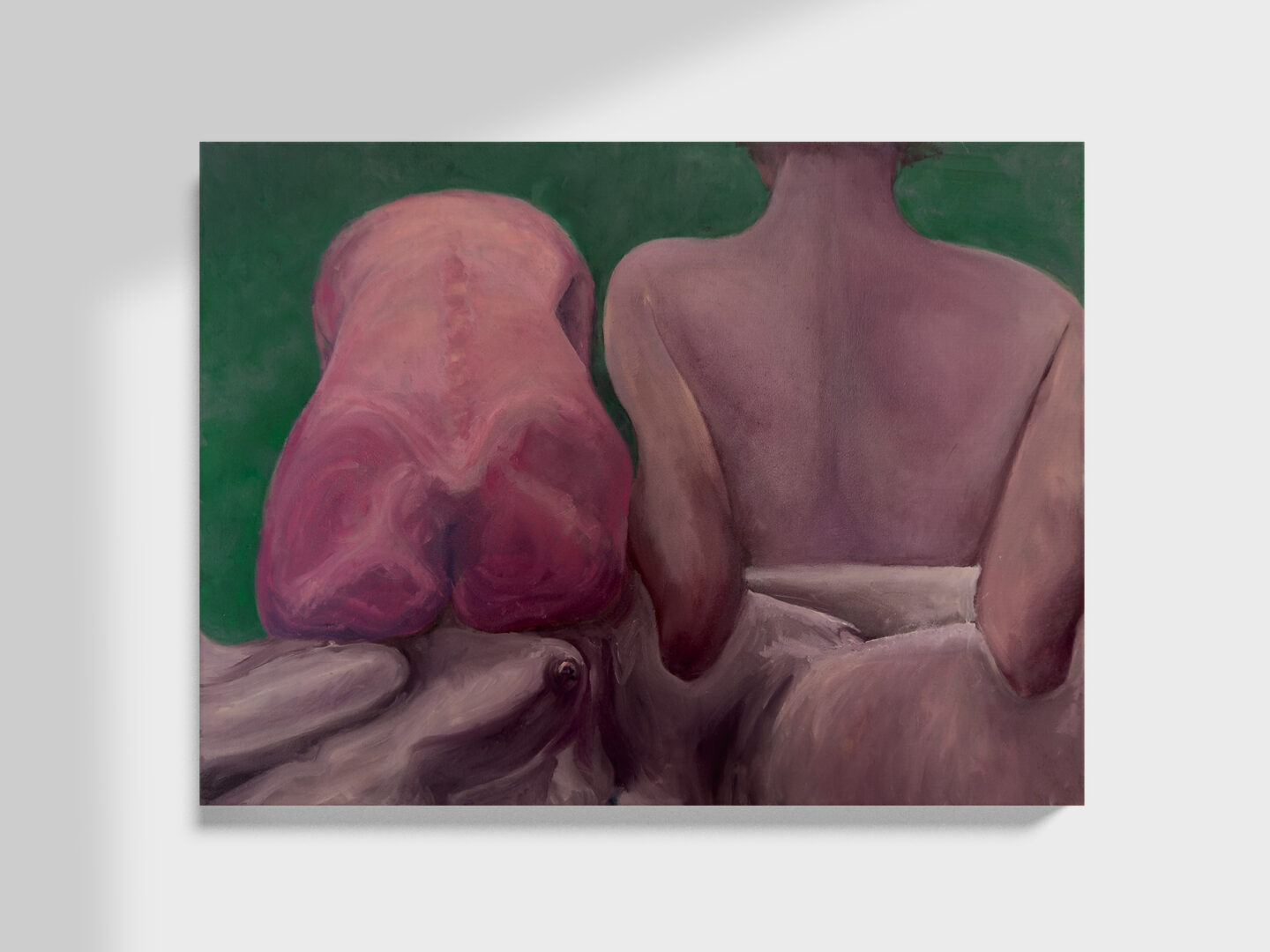
What was the most impactful thing your parents did for you?
This is so backward, but the most impactful thing my parents ever did for me was assign me the scapegoat/black sheep role in that toxic family infrastructure. Being the scaffolding for a fragile dysfunctional system stole my childhood and adolescence; it also forced me to choose myself. No longer a member of that dynamic, I am free to heal my wounds, choose my identity, and define my life path. These were all things I had no choice over while participating in that system. Perhaps this drove me toward self-portraiture: it allows me to look at myself clearly without the broken mirror of my unhealed parents’ projection. If I must have decades of trauma to contend with, I may as well use it to create something beautiful and resonant.
Contact Info:
- Website: https://jilliankatz.com
- Instagram: @jillianktz
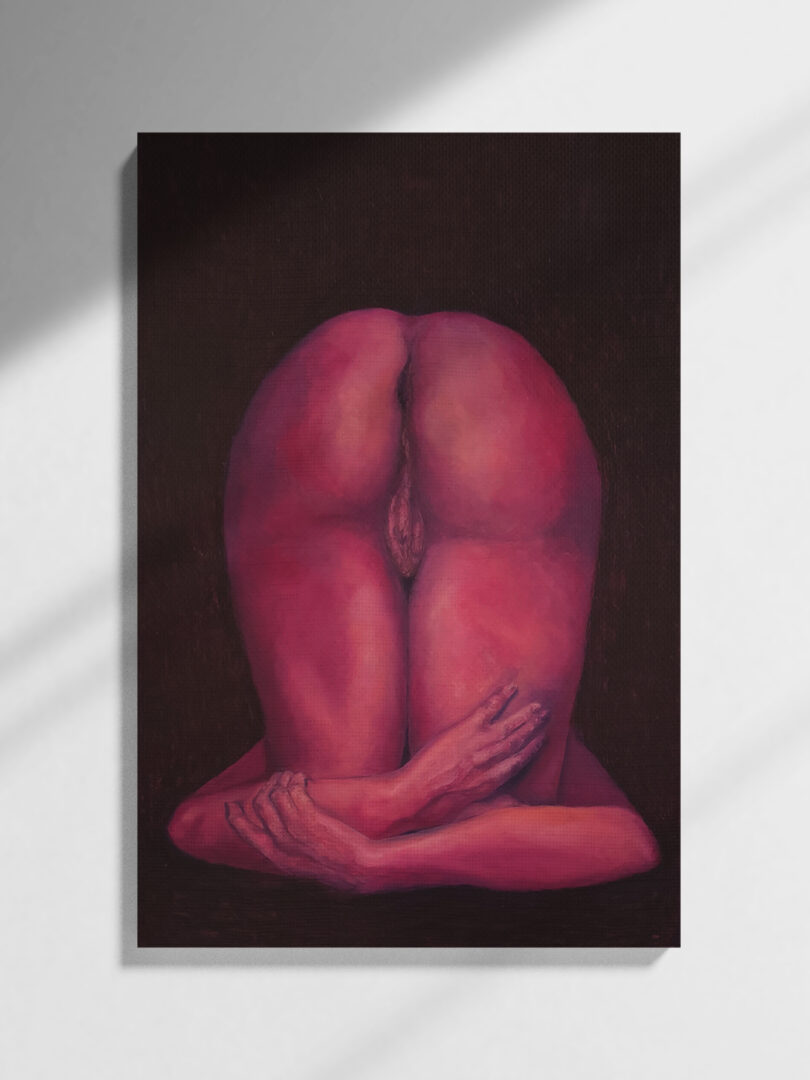
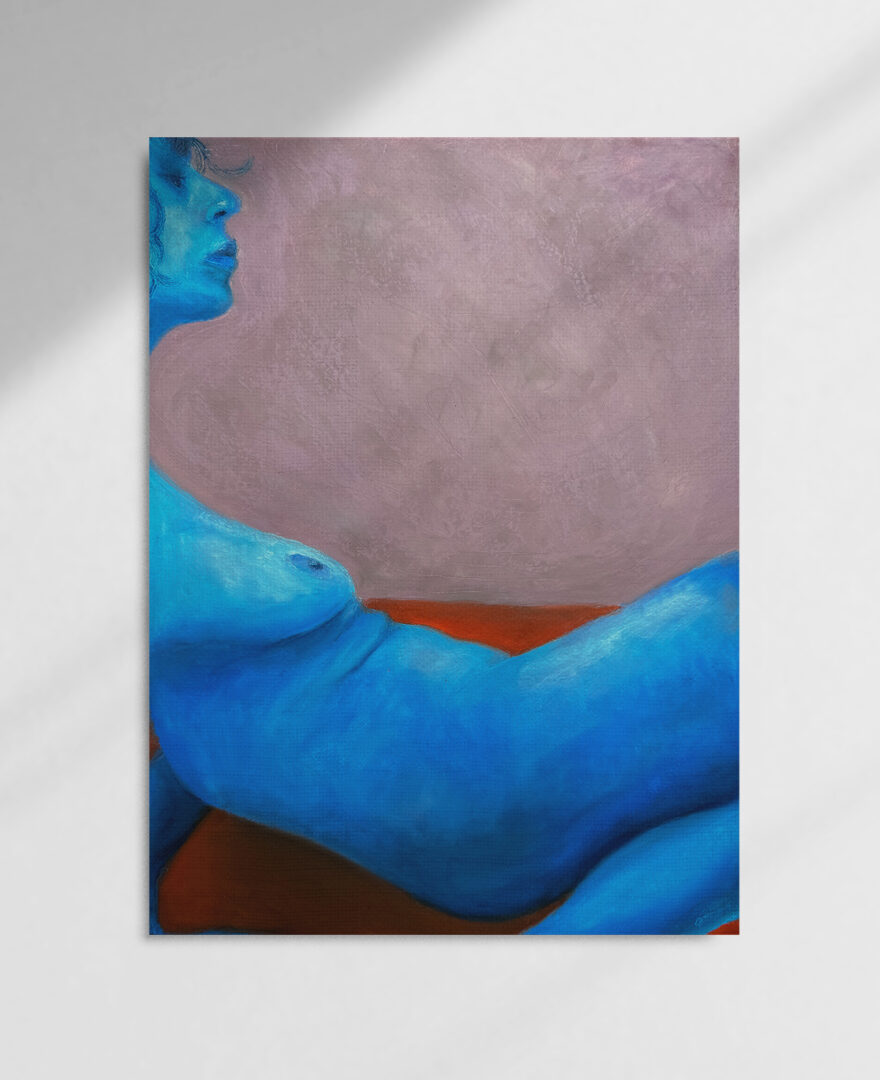
so if you or someone you know deserves recognition please let us know here.

